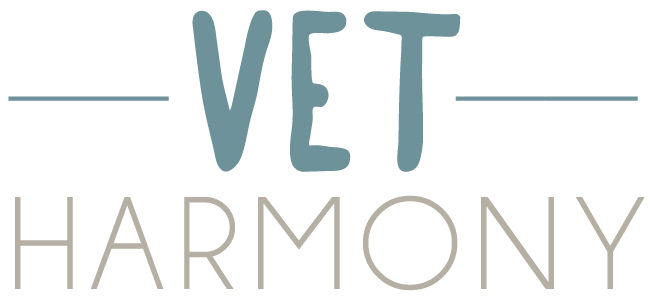This Autumn for me has been a flurry of speaking gigs, and as part of prepping for these comes the inevitable sending over of your speaker bio and background.
For years I used to just use the standard “I’ve trained here and then worked in these jobs” type, but over the last couple of years I’ve tried to make them more relevant and interesting, and less professionally waffly.
When writing a new bio a couple of weeks ago, I realised that I have now diversified 7 times, in both clinical and non-clinical roles within the veterinary profession since graduating 20 years ago….
I reckon that makes me the job re-invention queen! 👑
It took me 7 years to build up to the first jump as I had no idea how to start that process, but after navigating it once, it then became easier and easier to sense when I was out of alignment and re-use the processes I did the last time to find my next career move.
As I hear so many of my clients at the moment re-evaluating how they are working after the trials and tribulations of the last 18 months, it occurred to me that it might be helpful to share the biggest learnings I’ve picked up along the way.
So here are my 7 biggest lightbulb moments from 7 diversifications:
💡 You have way more transferrable skills than you imagine.
The first time I realised I couldn’t continue in 1st opinion GP work, I felt that I wasn’t qualified to do anything else, and that my physical clinical skills would be completely wasted if I did something else.
I started working with a life coach, mainly to try and help me understand WHY I wasn’t enjoying my role as a vet despite being good at it, but as part of that process we worked out all my hidden transferrable skills.
Outside of our practical skills, just about every thought process you go through as a clinician can be defined as a transferrable skill, the same as the process and people management skills we demonstrate as we run cases.
Working this out helps you to realise that there are many more options available to you than you may first think, even if you plan to stay clinical but would like a new direction to focus on.
💡 Let your core personal values be the compass that guides you
One of the first things I usually do when I’m working with a client is help them to define and think about their core personal values. The 5 or 6 really key values that drive you as a person and bring your life joy and meaning.
When we feel disconnected, dissatisfied or repeatedly considering a change in our lives, 99% of the time it’s because we’re living and acting out of alignment with something that’s really deeply inherently important to you.
Whether that’s balance, family, learning, purpose, adventure etc. – our own combination of values is very unique to each person and they differ widely.
They can also shift for you over time or when you reach a new stage of life, and this is why sometimes a role that once felt good can start to no longer make you feel the same way, as you’ve evolved as a person and now want different things.
Bringing these values into your conscious awareness and re-doing them every 3 years or so to see if they’ve shifted allows you to track whether you’re in alignment or not.
If you’re not in alignment then you have a clear direction you need to move in, which helps the decision-making process.
💡 You don’t always need to officially retrain to diversify
This is one of the biggest fear barriers I see in my clients. They want to change or maybe want to drop clinical work altogether but have financial levels to maintain and the perception is that if you change career path, then you’ll start at the bottom again, drop your income massively or have to invest in expensive and lengthy training which is often not an option.
However, for my 7 diversifications I have never yet once had to officially retrain!
I’ve gained positions based on my transferrable skills and competencies, and sure…. when you’re in the new role, you may well read up or go on courses to deepen your knowledge, but a lot can be learned just by osmosis and actively engaging in a role.
We are USED to doing hard things, and we are learning machines as veterinary professionals.
When I moved into a senior management role at Vets Now, I had no official business or financial training. I’ve never done project management before, nor business strategy, nor recruitment, marketing, PR or HR.
I used to sit in the monthly management meetings not understanding a single word of the finance manager as he ran through the numbers.
And yet within a year of stepping into that role, by listening, asking questions, allowing myself to try things, shadowing people, observing and learning, I soaked up so much knowledge in all these areas.
I ended up heading talks in high-level business acquisitions of other emergency service providers and negotiating with all the major veterinary corporate groups on high-level strategy.
I recruited and ran my own team of Customer Managers and won awards for my cross-functional clinic-opening team having opened 17 new Vets Now clinics around the country.
I am messy, normal, imperfect, not that efficient with my time management, struggle to multitask and had no formal training for these things but I was able to master them.
So don’t limit yourself in thinking about what could be possible for you or think that you shouldn’t apply for roles unless you have a qualification in something!
💡 You don’t need to heal all your limiting beliefs to move forwards
This was such a relief for me when I finally learned this one!
You’ll hear time and time again that to move forwards with your mindset, you need to clear your limiting beliefs. I am in 100% agreement that this is a valuable skill, and it can really transform you and heal you from old, outdated negative thinking patterns, and yet you don’t have to have completed this work to progress.
In fact, it’s not possible to actually fully remove a limiting belief anyway from a neurobiological perspective. We can’t prune neural connections, however we CAN let them atrophy.
If you wire in a new and more empowering belief about yourself and what’s possible for you, and you practice it diligently, then that new neural network you form in your brain will take over from the old one and it will become ‘how you now think’ automatically.
But the old limiting belief will still be there.
And at times of extreme stress, or times where you’re stretching to grow or make changes, it’s likely it will re-appear, often quite strongly.
And that’s ok!
Limiting beliefs are like scars, they are part of who you are and they tell your story.
But they are not WHO you are, and it’s perfectly possible to progress and make changes in your career while you’re still working on your beliefs and the old limiting ones are still active.
💡 Lived experience of mental health problems isn’t a barrier
The other day, I was challenged by my own coach to write a list of the achievements I am proud of as part of an exercises.
There were obvious ones in there, such as having worked at the top of both the veterinary corporate and independent sectors, becoming a successful coach, running my own business, being the first vet for Pet Blood Bank etc. but one of the things I also wrote down was having lived experience of mental health issues and not letting that hold me back.
I suffered fairly major generalised anxiety disorder and bouts of mild depression from my teens through to my late twenties, which ended funnily enough when I finally started to make my career diversification hops, although finding the right help and therapy was also a big part of that.
Nowadays my mental health is generally in good shape, although I can still veer in that direction from time to time. Despite this being a part of who I am however, it has not held me back from having a successful career and in many ways I think I’m a better leader, manager and general human because of my lived experiences of mental health issues.
💡 Re-write your definition of success
As part the process I have formed to navigate through a career or job role change over the years, an important part of that is giving yourself the permission and tools to write your own definition of what ‘success’ is in your life.
Most of us start out working from the traditional definition of success handed to us by our families of origin and education system. Then we look at what our peers are doing and add that in as well when judging what we ‘should’ be doing.
This often tends to keep us chained to a certain job, career path or vocation because it’s what’s expected of us, and we fear the comments or perception we’ll get from those around us if we veer off that pathway.
Cutting yourself free from this, and using your values and experience to work out what specifically brings YOU happiness and joy in your life, irrespective of title, salary or professional level is very liberating, but it requires taking ownership of your feelings and the courage to dance to your own tune.
💡 Re-write your definition of failure
This one is a biggie! Another big fear my clients often have when wanting to make a change is a fear of failure. Either failure of themselves, “what if I try this and I’m no good at it, or can’t make money from it?” or of how much they would enjoy it.
To my mind however, you only truly fail at something if you take no action at all.
If you’re brave enough to step off the known pathway and into the unknown by trying something, then your new mantra needs to be, “There is no failure, only feedback”.
Each job role tweak you try will teach you something about yourself, your skills, your preferences and it will show you the direction you need to move in.
Sometimes the only way to work out if you’ll miss something, or if you’ll enjoy it is to actively engage with it, and then you will find out.
Taking action before you feel ready and without a guarantee that it will ‘work’ feels scary, but it’s the quickest way to get to know yourself and the right pathway for you, as long as you redefine the word ‘failure’.
There we have it my lovelies, I hope that’s been helpful for you and I’d love to know in the comments if you have anything you’d add to that list from your own experiences.
If you’d like help this Autumn in putting these 7 lessons into practice for your own career journey, then I’m running a flash sale for the whole of November on my powerful 6-module online Veterinary Career Mastery course.
You get 6 self-study modules with training videos, exercises and guidance, plus 12 weeks of access to me each week for group coaching so you can pick my brains and get personalised support as you work through each set of techniques.
Pop the discount code VSGD100 into the Coupon section at checkout to get £100 off which brings the price down to just £397.00, and this works whether you pay in full or via 3 monthly instalments of £135.00.
I’d love to help you finish 2021 and start the new year in a very different headspace and with a clear plan of action for your next career steps so jump in while the offer is on!

